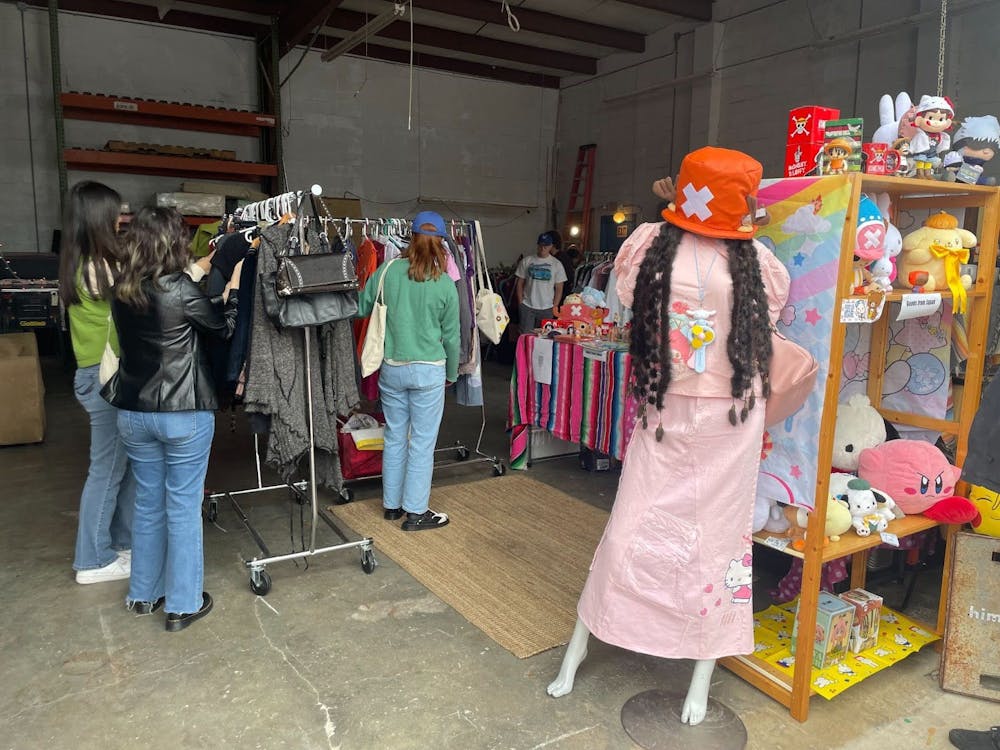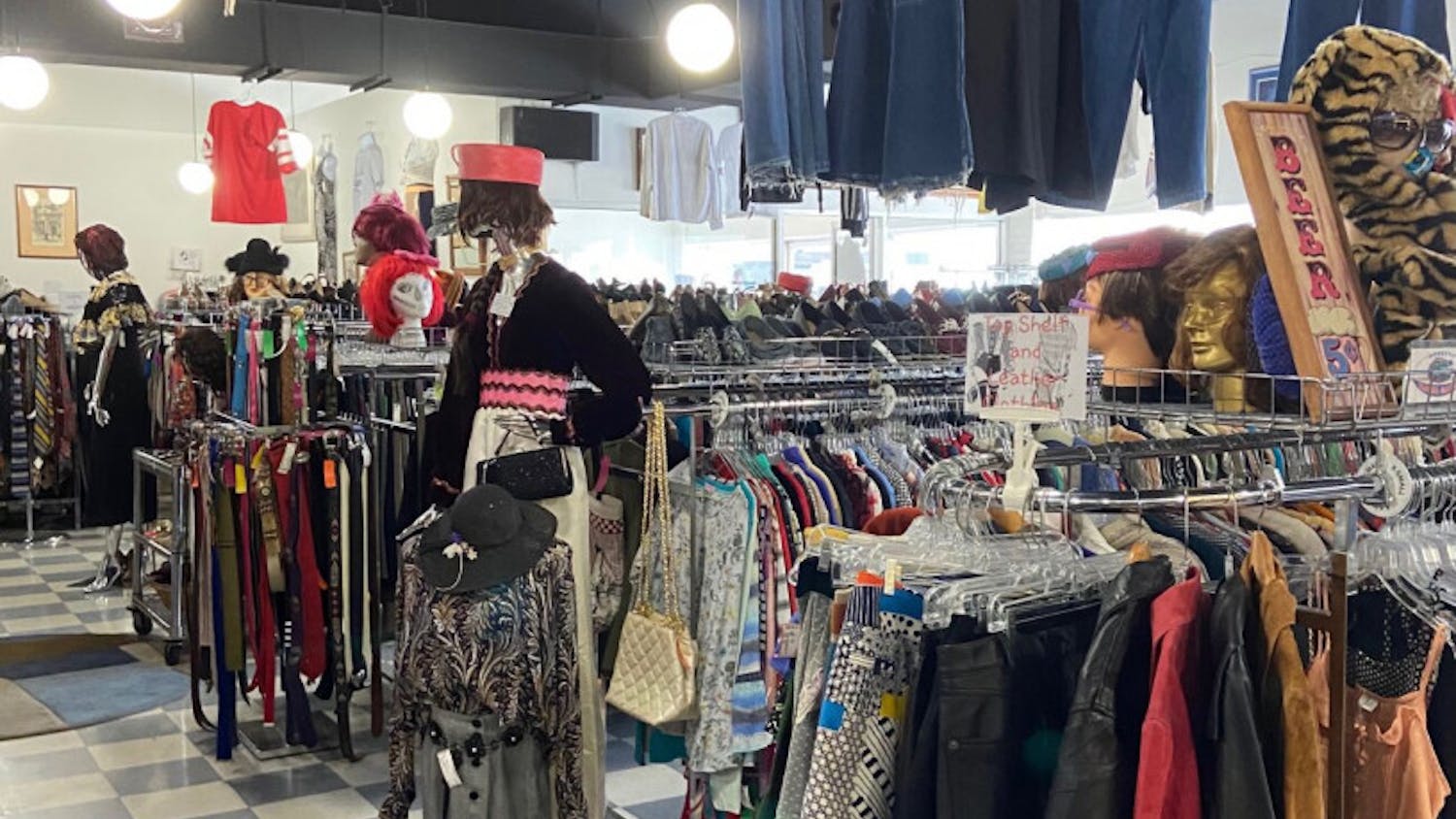In the early hours before her high school started, Hannah Shever woke up at 6 a.m. to travel with her mother to warehouses and thrift stores. Upon returning home from class, she placed price tags on clothing items and designed digital flyers.
As a junior in high school, Shever, a 22-year-old UC Berkeley psychology and cognitive science graduate, established the online and pop-up shop Himitsu Vintage — a brand that works to share vintage styles and Japanese goods with customers throughout the country.
By selling her items at pop-up markets in Gainesville and Berkeley, California, Shever strives to create a sense of community for Japanese students and residents.
“I have curated Japanese brands and styles that were popular in the 2000s that would translate into the trends here in the U.S.,” she said.
Shever’s inspiration for opening a vintage business began with the influence of her parents’ work in Japan.
While growing up in Sapporo, Japan, Shever watched her father and mother run the vintage stores Eco Thrift and Manki Monki. The stores featured a variety of custom designs, second-hand items, vintage fashion and items from the Americas and countries like Thailand and India, Shever’s father and previous UF student David Shever said.
After moving to Southern California when she was 6, Shever’s parents continued to run the business from their home.
Her mother, Maki, spent countless hours at night talking to the manager over Skype and keeping track of the items that were sold.
“She would overwork to make sure that she could handpick her vintage clothing items, ship them to Sapporo and also go back to sell them,” Shever said.
After years of watching her mother work tirelessly for the family-owned stores, Shever thought it would be easier to sell in the United States to eliminate shipping costs and the process of traveling back and forth.
To convince her mother that selling thrifted fashion and Japanese items could be popular in America, Shever decided to take matters into her own hands.
Shever began to source clothing items from warehouses, and she borrowed a mannequin and clothing hangers from her mother, she said.
Standing in front of her Southern California home in 2017, Shever, a junior in high school at the time, hosted her first pop-up market.
“It was pretty similar to how I run things now, but I’ve learned a lot over the past 6-7 years,” she said.
The pop-up market became a monthly event, and Shever started to slowly gain followers on clothing resale apps like Depop, Mercari, Vinted, Ebay and Instagram.
Now living in California while her family resides in Gainesville, Shever sells items online and travels back and forth between the two locations for pop-up markets.
Shever’s father, David, recalled the first time his daughter set up for a Gainesville pop-up market in August, and he said the family didn’t know what to expect.
“I had no idea how it was going to go,” he said.
Now, with almost 1,000 Instagram followers and 585 Depop followers, Shever’s participated in about 20 pop-up markets throughout Berkeley, California and Gainesville, including markets at the clothing shops Flashbacks and How Bazar.
To stand out from the wide variety of vintage clothing businesses, Shever said she chooses pieces that fit a variety of fashion tastes: Y2K girly, coquette, street style, avant garde, “grandma-esque,” ‘80s, ‘90s and cottagecore.
“I think anyone can find something that fits their style–just based on the customers that stop by,” she said. “Everyone has their unique style and often appreciates the diverse selection of vintage clothing.”
The Harajuku elements Shever often includes in her pieces consist of a “bright and extravagant” style of self-expression that became popular during the 1980s to 2000s in Harajuku, Japan, according to a blog posted to Japan Avenue.
In addition to the fashion items she sells, Shever collects and sells goods directly from Japan, including plushies, anime figurines and Sonny Angel dolls, which are small collectable cherub toys.
“Selling character goods and plushies that I love and enjoy makes it easy to connect to customers who share the same love for these items,” she said.
By selling a combination of American vintage items and Japanese goods, Shever said she’s been able to create a space for other Japanese people, especially those visiting Gainesville.
“In a small town like Gainesville, it is really hard to find a Japanese, let alone, Asian community,” she said. “For someone who visits for summers and holidays like myself, I find it hard to meet people of a similar cultural background.”
Through her Gainesville pop-up markets and online advertisements, Shever said she was able to meet and connect with people, many of whom were curious about the Japanese figures for sale or what it was like to grow up in Japan.
“It suddenly opened the doors to an entire new community of people who are Japanese, are practicing Japanese or appreciate our culture,” she said. “I found value in promoting Japanese culture and pieces throughout my business since it was a way for me to expand my business.”
Shever’s family, including her parents and sister, also aim to share their Japanese culture with the community, often joining Shever at her Gainesville pop-up markets or helping when she is back in California.
Each member of her family contributes to the business, Shever said. Shever’s father helps with the heavy lifting and design while Maki, her mother, focuses on the sales and social aspect.
“My business only runs because of my family,” she said. “They are the reason why I can keep doing this. We work as a team and we all have our strengths.”
Contact Alexandra Burns at aburns@alligator.org. Follow her on X @alexaburnsuf.






